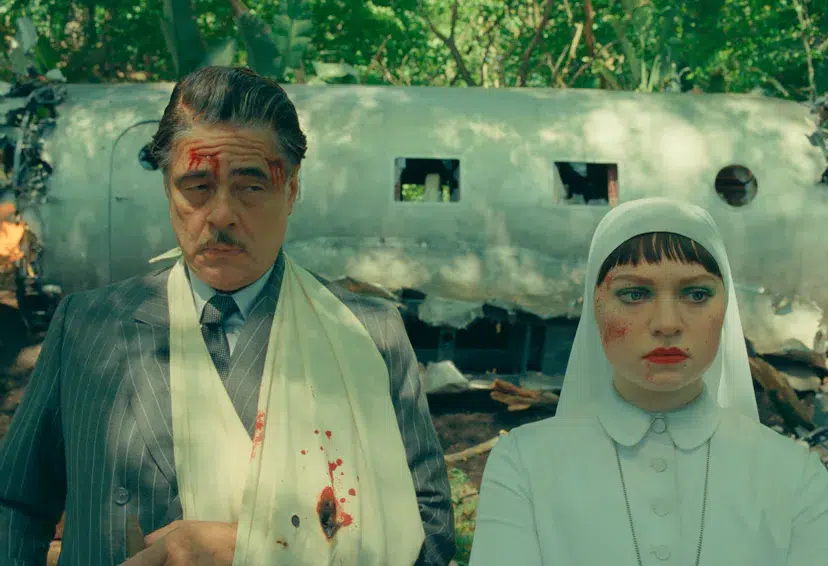
Deputy editor Chris Cotonou reviews one of the most anticipated films at Cannes this year.
There’s nothing particularly groundbreaking about The Phoenician Scheme. It’s not going to make Anderson detractors (a growing section) swivel their necks, nor does it subversively crumble his aesthetic style. It is, in fact, more of the same; a bit Turbo Anderson, even. But if you love his worlds like I do, that’s a good thing. And The Phoenician Scheme is also one of his most wholesome chocolate box of whimsy and fun.
We follow Anatole “Zsa-zsa” Korda (Benicio Del Toro), a ruthless oligarch who is frequently targeted by assassins, and whose only love is the type of crippling deal-making that often leaves his partners worse off. His next project is a sort of convoluted development in Phoenicia (based on the Middle East) that I had a hard time actually understanding but involves six phases, and just as many business partners who we meet through the duration of the film. Now, because Korda is constantly being targeted in hilarious ways—his deadpan reactions to these assassination attempts is one of the funniest parts of the movie—he asks his daughter Liesl (Mia Threapleton) to be his heir. The issue? She happens to be a pious nun. And she stands for everything he does not. Joining them is hapless tutor Bjorn (Michael Cera). And naturally, like all Anderson ensemble movies, there’s a colourful who’s-who of Hollywood stars in brilliant cameos.
Predictably, this becomes an oddball father-daughter buddy movie, a bit like Paper Moon, where the leads finally learn about themselves and their relationship by the end. But Del Toro and Threapleton have excellent chemistry, and their relationship is completely charming and believable. Emotional maturity isn’t always a core aspect of Anderson’s writing (or at least it’s buried under the irony), but here, there’s so much of it and the result causes a more complete story than usual.
In between, we have slapstick action, Marxist guerrillas, Mathieu Almaric channelling Casablanca, and one hilarious basketball scene that will no doubt become an Anderson classic. The pace is on point throughout, if for a small series of flat notes toward the end (notably between Zsa-zsa and his evil kohl-lined brother). The Phoenician Scheme is also a beautifully framed film. Every shot feels thoughtful. When fixed, your eyes bound from corner to corner as though analysing a painting. When Anderson’s camera moves, the choreography of steps, cues, and music is theatre.
Already, a number of critics have asked whether it’s more of the same. The Phoenician Scheme is not only a new addition to his universe, it’s perhaps the richest one yet. And I couldn’t help but find it completely charming. I imagine his body of work will feel especially rich in hindsight, like stacks of Tintin comics. Wes Anderson does France; Wes Anderson in a Grand Budapest Hotel; Wes Anderson’s eccentric New York family… you get where I’m going with this. Vignettes of his world that can be revisited for their particular moods, and easily fallen into, without pretence, deep allegory, or anything more than the fact they’re fun. The Phoenician Scheme is one of his greatest hits.





